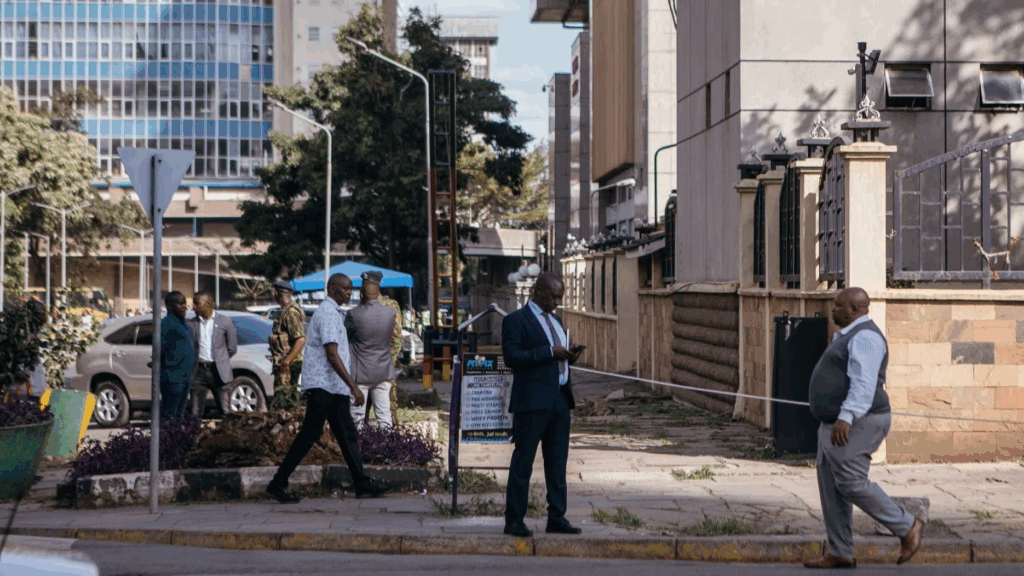This report is intended to assist the Norwegian Refugee Council (NRC) and other humanitarian actors to leverage digital payment systems such as mobile money in their humanitarian cash transfers. FSD Africa commissioned Strategic Impact Advisors (SIA) to examine the challenges and opportunities of providing digital financial services (DFS) in Sudan, particularly to displaced populations and lowincome segments. SIA also leveraged the Connectivity Usage and Needs Assessment (CoNUA) data by GSMA to conduct additional analysis on beneficiary digital readiness, and assess the key challenges stopping them from either accessing or using their mobile devices in more diverse and confident ways.
Overall, this exercise aimed to improve cash assistance programs in Sudan and to provide guidance on improving access to DFS. Based on the analysis of the key barriers for both the supply and demand side, SIA came up with recommendations for how the humanitarian sector can help improve access to financial services and strengthen the underlying digital payments infrastructure.
Supply Side Recommendations
Provide Evidence of Revenue Potential
When humanitarian organizations engage the private sector, they can provide projected transfer numbers in more detail to help financial service providers (FSPs) calculate revenue potential. Providing FSPs with a clear roadmap of the number of households, including the values and frequency that cash is disbursed, can help providers get a clearer picture of the potential. Humanitarian organizations can also provide some of the analysis done on different segments to help providers think about which beneficiaries might be more likely to use the products and services beyond simply cashing out. Based on cash volume, value, and frequency projections provided by the Sudan Cash Working Group (CWG), SIA developed a high-level revenue potential analysis (Annex C) to help service providers assess the market opportunity for delivering digital cash transfers.
Support MNOs in Overcoming Airtime Credit Transfers
Cash-in/cash-out agents are a crucial part of any digital financial service, and the primary physical points of service for mobile money are currently nonexistent. Airtime resellers for mobile network operators (MNOs) are not being incentivized to consider mobile money as they are making high commissions off of airtime credit transfers, which is essentially using airtime to send funds that airtime resellers then turn into cash for a price. Humanitarian organizations can support the transition away from these more informal services by providing information on the frequency and value of transfers (demand) in a certain area to allow formal FSPs to help potential agents understand how much they could be making compared to the credit transfers they are conducting now via formal DFS (i.e. mobile money). Humanitarian organizations should support fintechs and other initiatives that are attempting to build out agent networks. Shared agent networks like Alsough are interoperable, meaning they provide a point of service where customers can access services regardless of their FSP (bank or mobile money), and provide choices among beneficiaries, allowing them to select the provider that offers the product that is the best fit for them.
Support in Bolstering the Access and Usage of ID
The Commission of Refugees (COR) identity document (refugee ID card) is not recognized as a know your customer (KYC) document within the governing KYC/customer due diligence (CDD) regulation or by most financial institutions; however, in 2019 the Central Bank of Sudan issued a decree stating that the refugee ID card is a KYC document, but banks have been slow to offer services to this segment and have yet to adapt their procedures to accept it. Humanitarian organizations can play an advocacy role in getting regulators to issue more clear guidance on refugee access to mobile money wallets. Among internally displaced persons (IDPs) and host communities, humanitarian organizations can educate beneficiaries about the benefits of having access to an ID that enables them to register for DFS.
Demand Side Recommendations
Expanding Digital Capability, With a Focus on Women
Across all segments, women were less confident in using a mobile phone or using the mobile internet. Building digital capabilities among beneficiaries, with a focus on women, can start to reduce this barrier. Humanitarian actors could begin considering how to integrate elements of digital capability training into their interactions with beneficiaries. Having greater digital capabilities and knowing which activities consume more data can also help improve smartphone users’ management and use of data, helping reduce costs.
Driving Down Costs of Handsets
Cost of handsets was the most popular barrier across all segments in White Nile and West Darfur. While the cost of mobile phones, particularly smartphones, is declining, cost is a major barrier for accessing and using a mobile phone. Humanitarian organizations could consider partnerships with MNOs to subsidize basic and smartphones for interested beneficiaries.
Awareness of Limited Network Coverage
Another barrier often cited was a lack of network coverage, particularly for the use of the mobile internet. Expanding network coverage is likely out of the scope of humanitarian organizations, but field staff could collect data on signal strength when making field visits and provide this feedback to MNOs. This information could be used to inform whether pushing for digital payments in certain areas is premature, as network coverage is weak. While it is highly unlikely humanitarian organizations can influence greater investment in network infrastructure in certain areas, they can provide information on weak network areas and help to make data driven decisions on where digital payments may be harder to achieve.



